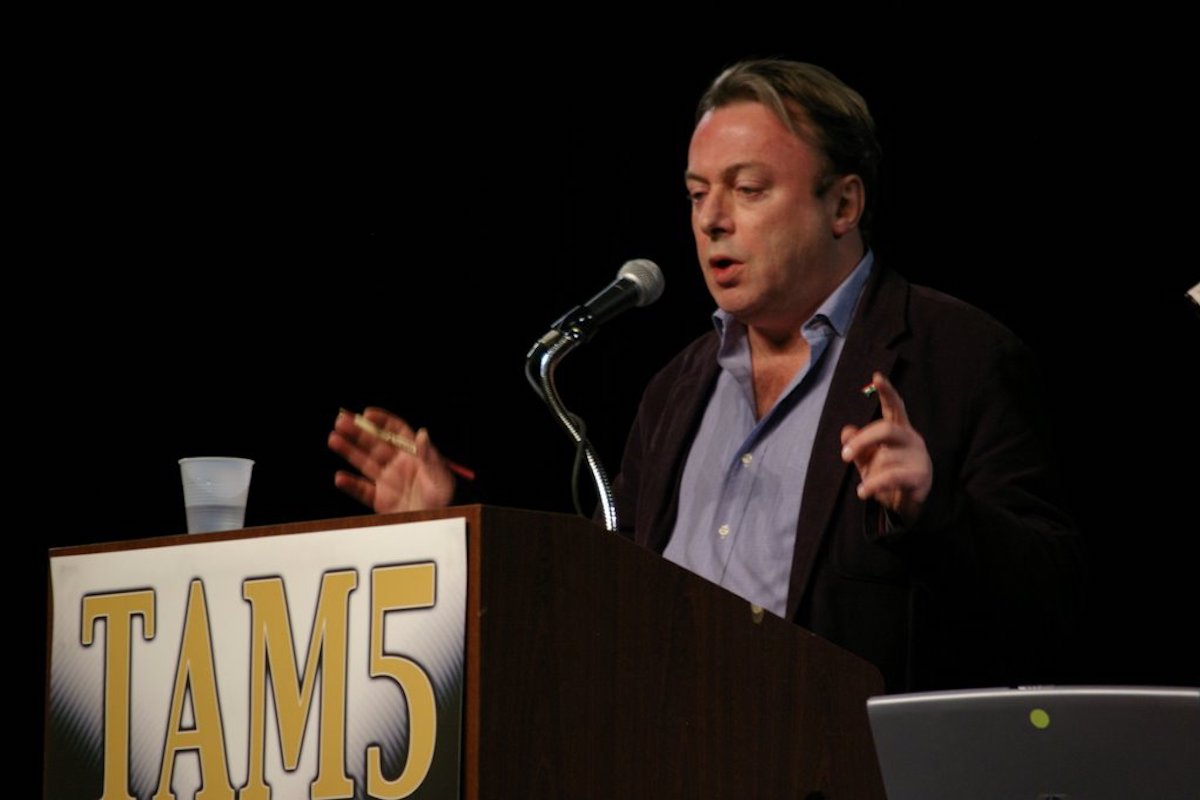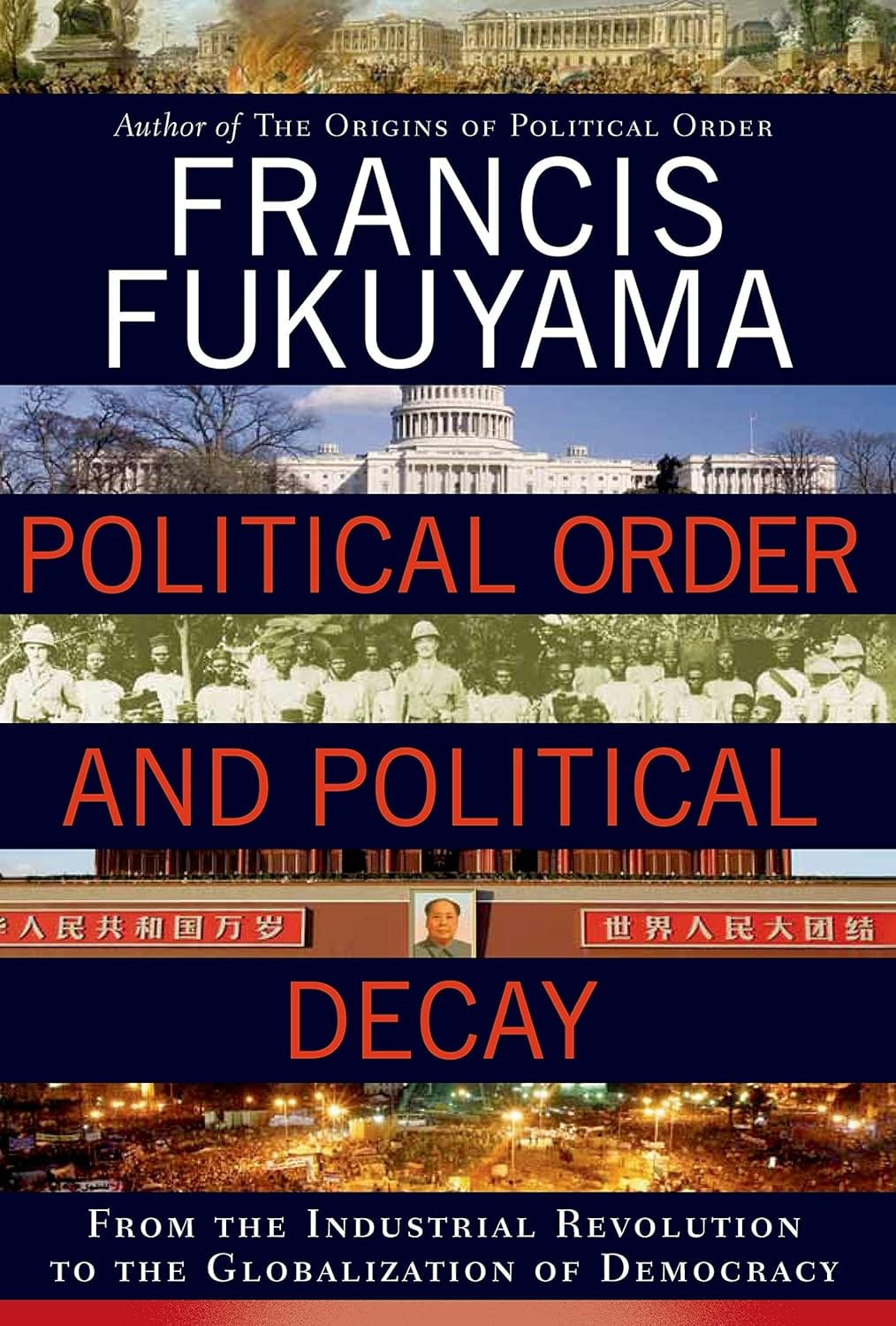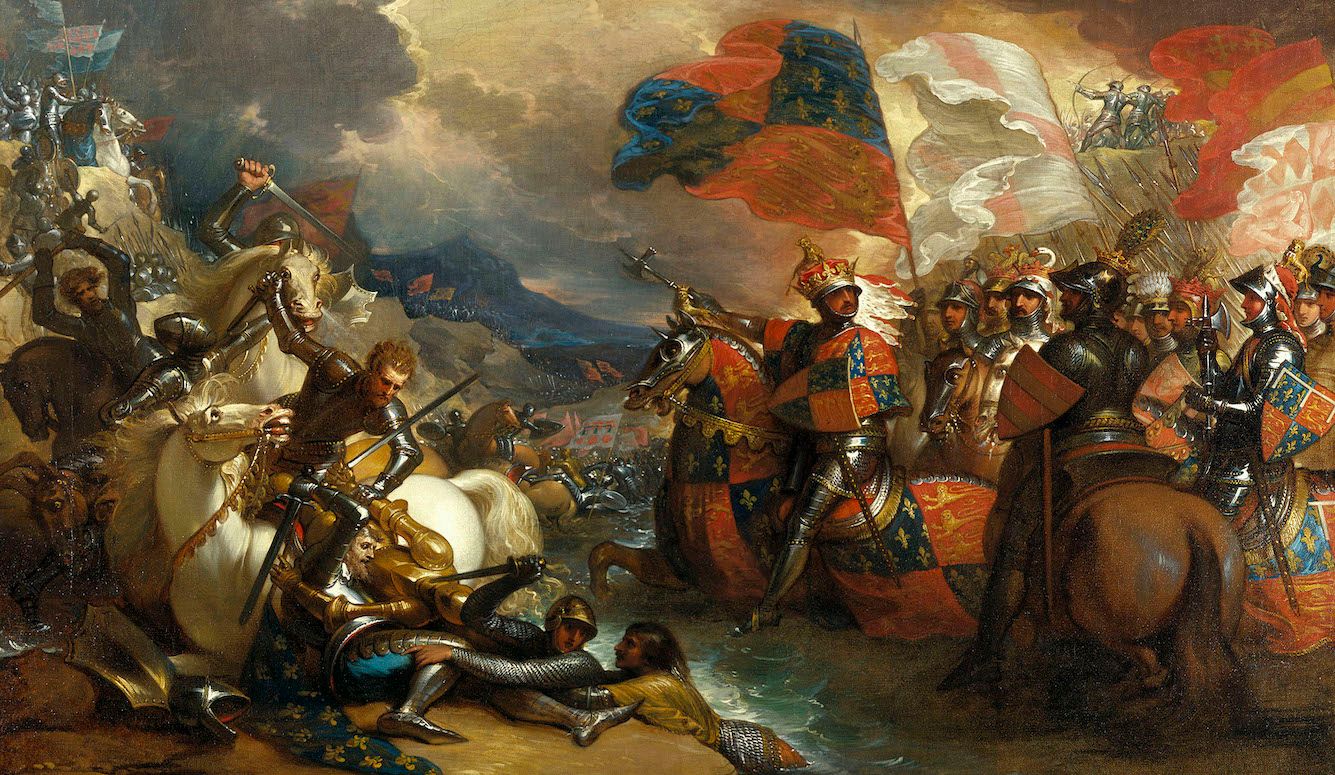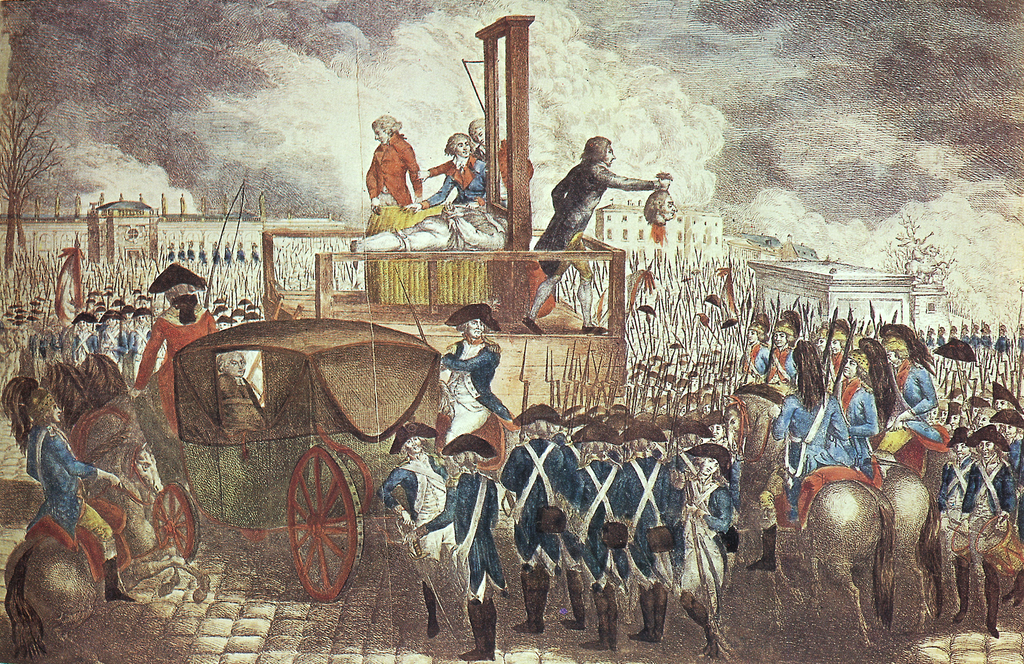COVID-19
COVID-19 Is Not the End of 'The End of History'
As COVID-19 suffocates the global economy, borders remain closed, and tensions mount between EU countries, the US and China, etc., Fukuyama’s critics are taking the opportunity to dismiss the “The End of History?” while ignoring its basic premises.

I.
If there were an annual award for the world’s most misunderstood essay, Francis Fukuyama would have won it every year for the past three decades. “The End of History?” was published in the National Interest in the summer of 1989, and it argued that the world was witnessing the “total exhaustion of viable systematic alternatives to Western liberalism.” This observation led Fukuyama to a conclusion that has catalyzed more debate than any other single argument since the collapse of the Soviet Union: “What we may be witnessing is not just the end of the Cold War, or the passing of a particular period of postwar history, but the end of history as such: that is, the end point of mankind’s ideological evolution and the universalization of Western liberal democracy as the final form of human government.”
Fukuyama must have known how controversial this claim was, but he never could have anticipated the impact his essay would have or how grossly it would be misrepresented. What’s remarkable about “The End of History?” is how fundamentally its critics often miss the point. Christopher Hitchens summarized the most common objection in an essay for the Weekly Standard in 2005. The new era of triumphant liberal democracy, he wrote, was “over before it began. By the middle of 1990, Saddam Hussein had abolished Kuwait and Slobodan Milošević was attempting to erase the identity and the existence of Bosnia. It turned out that we had not by any means escaped the reach of atavistic, aggressive, expansionist, and totalitarian ideology.”

But Fukuyama didn’t argue that there would be no more Saddam Husseins or Slobodan Miloševićs, nor did he make the case that violence and oppression were at an end. As he put it: “This is not to say that there will no longer be events to fill the pages of Foreign Affairs‘ yearly summaries of international relations, for the victory of liberalism has occurred primarily in the realm of ideas or consciousness and is as yet incomplete in the real or material world.”
Over the past several years, article after article has declared “The End of the End of History.” Other recent headlines include “The Man Who Declared the ‘End of History’ Fears for Democracy’s Future” and “Francis Fukuyama Postpones the End of History.” The reasons given for why history is continuing apace are well-rehearsed: the rise of authoritarianism in Europe and the United States, the “decline of democracy,” the Great Recession, the emergence of China as a competitor to the US, Brexit, and other shocks and trends that seem to challenge the status quo in Western democracies. And now there’s COVID-19, which has devastated the global economy and empowered authoritarian governments around the world.
As the executive director of Human Rights Watch, Kenneth Roth, recently observed: “The health crisis will inevitably subside, but autocratic governments’ dangerous expansion of power may be one of the pandemic’s most enduring legacies.” Roth provides a frightening list of authoritarian measures being deployed in dozens of countries, including restrictions on media organizations and dissidents, a state of emergency in Hungary that allows Viktor Orbán to “imprison for up to five years any journalist who disseminates news that is deemed ‘false,’” and increased digital surveillance in Russia and China. “As occurred after September 11, 2001,” Roth writes, “it may be difficult to put the surveillance genie back in the bottle after the crisis fades.” He also worries about other “long-lasting restrictions on civil liberties” brought about by COVID-19.
Roth is one of many human rights observers raising the alarm about the political fallout of COVID-19. Fionnuala Ni Aolain, the United Nations Special Rapporteur on counterterrorism and human rights, argues that “We could have a parallel epidemic of authoritarian and repressive measures following close if not on the heels of a health epidemic.” Freedom House’s Allie Funk and Isabel Linzer warn that “this crisis could trigger a lasting global backslide in fundamental freedoms—and it’s already started.” Joel Simon, executive director of the Committee to Protect Journalists, points outthat “We must be mindful that when we get to the other side of the pandemic, we may be left with a narrative, being written by China, that government control over information was essential to combating the crisis.”
Countless articles are also speculating about the destructive impact COVID-19 will have on globalization—another pillar of the End of History. An article in Foreign Policy declares that the pandemic is “killing globalization as we know it” because it’s empowering nationalists who want to constrict the free movement of people and goods. A headline in Forbes announces that the “Post-Coronavirus World May Be the End of Globalization.” In Bloomberg, Robert D. Kaplan argues that COVID-19 is driving the “second phase of globalization,” which will be a period of great power competition and the rise of authoritarianism, nativism, and populism. According to Kaplan, “Globalization 2.0 will deepen and be with us for years. Only in the fullness of time will it turn out to be just another phase that humanity passes through: not the end of history.” Like many of Fukuyama’s critics, Kaplan uses the phrase “end of history” as a byword for the naivety of anyone who believes humanity is moving in a certain direction.
II.
There aren’t many events like the COVID-19 pandemic in a single lifetime—events like the Kennedy assassination, the fall of the Berlin Wall, and the September 11th attacks, which remind us that we aren’t just passive observers of history but active participants in it. It’s no surprise that COVID-19 is making so many people worry about the sustainability of democracy, free markets, globalization, and the other institutions and systems that we often take for granted. And these concerns aren’t limited to intellectuals and activists—Italian Prime Minister Giuseppe Conte recently questioned the future of the EU without more cross-border solidarity and support: “If we do not seize the opportunity to put new life into the European project, the risk of failure is real.”

While the number of liberal democracies in the world (which has surgedsince the end of the Cold War, despite recent setbacks) is compelling evidence for Fukuyama’s thesis, the argument isn’t strictly empirical—it’s about the success and failure of certain ideas, and what those ideas tell us about how countries will behave in the future. Today, Fukuyama also acknowledges the danger of democratic backsliding: “Twenty five years ago, I didn’t have a sense or a theory about how democracies can go backward. And I think they clearly can.” In his 2014 book Political Order and Political Decay: From the Industrial Revolution to the Globalization of Democracy, Fukuyama discusses this theory in detail.
As COVID-19 suffocates the global economy, borders remain closed, and tensions mount between EU countries, the US and China, etc., Fukuyama’s critics are taking the opportunity to dismiss the “The End of History?” while ignoring its basic premises. For example, in an essay for American Greatness about deglobalization and the reassertion of state sovereignty as a consequence of the pandemic, Fukuyama’s Stanford colleague Russell A. Berman wrote:
Capitalists… have indulged in the fantasy of the end of the state, especially in the neoliberal version of an economy free of political constraints. This peculiar fiction grew pronounced in the millenarian hallucination of an “end of history,” which preached that the epochal change of 1989 had ushered in a Kantian era of perpetual peace. Global capitalism was supposed to erase borders, replacing national solidarities with abstract universalism. Genuine conflicts were predicted to dissolve into rules-based competition, while existential threats would dissipate in a thoroughly benign cosmos. After all, with the fall of Communism, all enemies had disappeared, which made states obsolete.
So, the tradition of misreading and misrepresenting “The End of History?” continues. Fukuyama didn’t predict a “Kantian era of perpetual peace”—he explicitly rejected that idea. While he emphasized the “‘Common Marketization’ of international relations, and the diminution of the likelihood of large scale conflict between states,” he argued that this “does not by any means imply the end of international conflict per se.” While it’s true that Fukuyama was too optimistic about the prospects for liberalization in Russia and China, he acknowledged the possibility that both countries would continue to resist reform and “remain stuck in history.” “Conflict between states still in history,” Fukuyama explained, “and between those states and those at the end of history, would still be possible.”
Fukuyama also pointed out that “There has always been a very strong current of great Russian chauvinism in the Soviet Union, which has found freer expression since the advent of glasnost”—a current epitomized by Vladimir Putin’s revanchist attempts to claw back some of Russia’s Cold War territory and international standing. Putin believes the collapse of the Soviet Union was the “greatest geopolitical catastrophe” of the 20th century, and he defended the invasion and annexation of Crimea in 2014 by arguing that Russia was “robbed” and “plundered” at the end of the Cold War. With the fall of communism, Fukuyama didn’t claim that “all enemies had disappeared” and states had become “obsolete.” In fact, he argued that nationalism remained a potential ideological threat to liberal democracy.

However, Fukuyama argued that “nationalism is not one single phenomenon but several, ranging from mild cultural nostalgia to the highly organized and elaborately articulated doctrine of National Socialism. Only systematic nationalisms of the latter sort can qualify as a formal ideology on the level of liberalism or communism.” Fukuyama also observed that most forms of nationalism don’t “offer anything like a comprehensive agenda for socioeconomic organization.”
While it’s true that nationalism can lead to certain socioeconomic policies regarding trade, immigration, and so on, it isn’t an economic or political system in and of itself. This is why Fukuyama argued that nationalism doesn’t necessarily represent an “irreconcilable contradiction in the heart of liberalism.” Still, there’s no doubt that it can be corrosive to liberalism—particularly when it devolves into xenophobia or jingoism, which can threaten marginalized citizens and lead to restrictions on freedoms. Nationalism can create fertile ground for authoritarianism, a reality of which many Americans and Europeans have been reminded in recent years.
There’s a lot of talk about how authoritarianism is on the rise around the world—particularly as COVID-19 gives governments an excuse to suspend elections, shut down courts, and spy on their citizens. But like nationalism, authoritarianism isn’t a self-contained ideology—it’s a phenomenon that can be expressed in many different ways, from President Trump describing journalists as “enemies of the people” and peddlers of “fake news” to the murder of dissident journalists in Russia. While Trump’s behavior is reprehensible and alarming, he’s constrained by the rule of law and democratic institutions that Putin doesn’t have to contend with.
Organizations like Human Rights Watch, Freedom House, and the Committee to Protect Journalists are right to be concerned about creeping authoritarianism around the world during and after the COVID-19 pandemic. While drastic measures are necessary to arrest the spread of the disease, it’s difficult to think of a greater gift to authoritarian leaders than sweeping emergency powers (which are often passed quickly and subject to minimal oversight). The countries that are in the strongest position to prevent these powers from being abused are the ones that have a free and open press, institutions such as an independent judiciary and legislature that check the authority of the ruler, and robust civil society groups like the ones listed above. Liberal democracies, in other words.
III.
“At the end of history,” Fukuyama wrote in 1989, “it is not necessary that all societies become successful liberal societies, merely that they end their ideological pretensions of representing different and higher forms of human society.” Fukuyama has since revised this view: “If China… remains strong and stable for another generation, then I think there is, in fact, a real alternative to liberal democracy.” To Fukuyama’s critics, this really is the end of the End of History—his essay argued that the world had witnessed the “total exhaustion of viable systematic alternatives to Western liberalism,” but a viable alternative has emerged.
However, this is another misreading of his argument. Fukuyama never claimed that every country in the world would adopt liberal democracy by a certain date, nor did he think it was inconceivable that an alternative would be developed. He just argued that there were good reasons why liberal democracy was the most sustainable form of government—an argument that hasn’t been decided one way or the other. He points out that we don’t have a definitive answer about whether China’s model will prove to be more durable in the long run, either:
The big question that I think no one can really answer right now is the extent to which this model is sustainable. The economic model, which is based on a lot of debt, is not sustainable. Whether the Chinese Communist Party can continue to produce leadership that’s adequate to the kind of challenges such a large country faces is also not clear. If there is an economic crisis like a big recession, which China has really not experienced since 1978, that will put a lot of stress on the country and so, it’s just not clear how well the system is going to last when it’s stressed. So far, it has done well because there has been stability in the external environment. But that’s not always going to be the case.
With COVID-19 and the massive global economic downturn it has caused, the external environment is less stable than it has been in years. Fukuyama has long argued that China’s rising middle class could become restless in the event of economic stagnation or contraction, which would put greater pressure on Beijing to become more democratic (or at least less repressive). China’s growth rate was slowing before the COVID-19 outbreak and the trade war with the US wasn’t helping. As Fukuyama notes, China also has a high debt-to-GDP ratio due to its massive investments in infrastructure with programs like the Belt and Road Initiative, which could cause fiscal problems over the long term (particularly because foreign investment is inherently less predictable than domestic investment, as Beijing has far less control over events beyond its borders that can lead to instability).
When virtually the entire National People’s Congress voted to amend the Chinese constitution in 2018 to confirm Xi Jinping as president for life, one of the last remaining checks on his power was removed—Fukuyama arguesthat this will eliminate accountability and lead to destabilizing succession struggles in the future.
While China’s authoritarian model allowed for a robust response to COVID-19, it also coerced and punished whistleblowers like Li Wenliang, whose warnings went unheeded in the crucial early weeks of the outbreak. When hundreds of millions of Chinese suddenly found themselves under lockdown, there was an explosion of outrage at the authorities in Beijing and the provincial government in Hubei, while Dr. Li became a martyr following his death from COVID-19. Counterintuitively, China’s huge surveillance apparatus may have prevented the government from discovering the truth about COVID-19. In an essay for the Atlantic, Zeynep Tufekci argues: “If people are too afraid to talk, and if punishing people for ‘rumors’ becomes the norm, a doctor punished for spreading news of a disease in one province becomes just another day, rather than an indication of impending crisis.”
Tufekci also observes that China’s authoritarian system may have given local officials an incentive to lie to both the public and the central government. This is what happened in the late 1950s when officials across the country convinced Mao Zedong that China was experiencing an agricultural surplus, leading him to encourage Chinese to eat “five meals a day” and export vast amounts of food just before one of the worst famines in human history: “Apparatchiks in various provinces had engaged in competitive exaggeration,” Tufekci writes, “reporting ever-increasing surpluses both because they were afraid of reporting bad news and because they wanted to please their superiors.” Authoritarianism has its strengths, but its weaknesses can be catastrophic.
Talk about the “end point of mankind’s ideological evolution” and the “final form of human government” seems destined to age poorly. But liberal democracy is the product of centuries of philosophical, cultural, and political development, from the Magna Carta to the Enlightenment to the French and American Revolutions. This is a cartoonishly brief summary of the origin and refinement of liberalism, but it’s only intended to illustrate a broad point: It takes a vast amount of time to build a system capable of enduring for hundreds of years. This is why attempts to do so quickly in places that don’t have long traditions of democratic governance—in Iraq and Afghanistan, for instance—can be immensely difficult.

China is a very old civilization, which (as Fukuyama explains in The Origins of Political Order: From Prehuman Times to the French Revolution) ironically created some of the core features of liberal democracy, such as the idea of an impersonal state bureaucracy. However, the modern Chinese system is a recent innovation, and it will be a long time before we know whether it’s capable of outperforming—much less replacing—liberal democracy.
Take a moment to consider the shocks and crises liberal democracy has endured over the past quarter of a millennium: the US Civil War, the Great Depression, two World Wars, a Cold War against an implacable nuclear-armed adversary. This history should put COVID-19 and the rise of authoritarianism—frightening as those things are—in perspective. At a time when every glance at the headlines reminds us that we’re living through history, it’s worth taking a moment to appreciate the fact that a debate over whether liberal democracy represents the “final form of human government” is still worth having.






